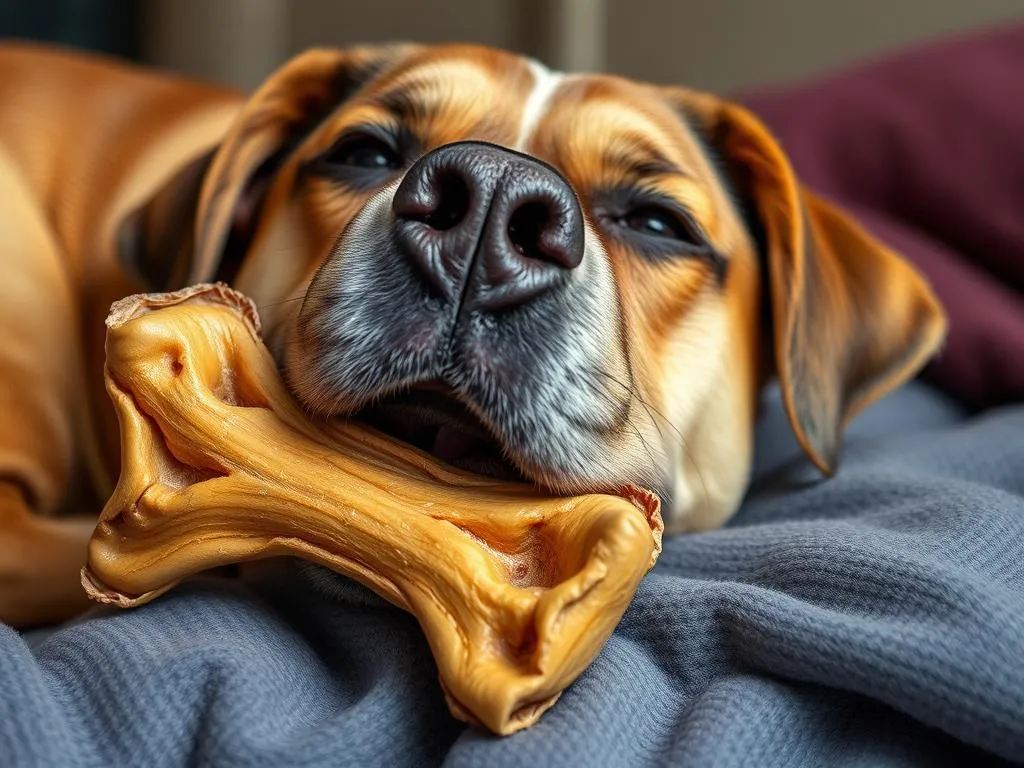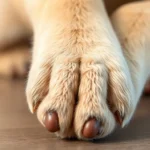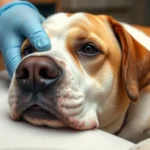
Swallowing rawhide is a common concern among dog owners, and it can lead to various health issues. Many dogs find rawhide irresistible due to its chewy texture and flavor, but what happens when your furry friend gobbles it down without properly chewing? Understanding the implications of this situation is crucial for every dog owner.
Understanding Rawhide
What is Rawhide?
Rawhide is a popular chew treat made from the inner layer of animal hides, often sourced from cattle. It comes in various shapes and sizes, including strips, bones, and even flavored options. Rawhide is processed and dried to create a tough, chewy texture that dogs love.
Why Do Dogs Love Rawhide?
Dogs are naturally inclined to chew, and rawhide satisfies this instinct. Chewing on rawhide provides mental stimulation, can help alleviate boredom, and is often seen as beneficial for dental health. As dogs chew, the abrasive texture may help reduce plaque and tartar buildup, contributing to better oral hygiene.
Risks Associated with Rawhide
While rawhide can offer some benefits, it also poses several risks. One major concern is choking hazards. If a dog swallows a piece of rawhide that is too large, it can lead to choking. Additionally, rawhide can cause digestive issues, such as blockages in the intestines, leading to serious health complications. Some dogs may also have allergic reactions or sensitivities to rawhide, resulting in gastrointestinal upset or skin irritations.
Immediate Actions to Take
Assessing the Situation
If you find yourself in the situation where my dog swallowed rawhide, the first step is to assess your dog’s condition. Look for signs such as coughing, gagging, or distress. Observe how much rawhide your dog has swallowed; a small piece may pass through the digestive system without issue, while a larger piece can cause problems.
When to Contact Your Veterinarian
It’s important to know when to seek veterinary help. If your dog exhibits any of the following symptoms, it’s time to contact your veterinarian immediately:
- Vomiting or retching
- Lethargy or weakness
- Abdominal pain or bloating
- Diarrhea or constipation
Staying calm and assessing the situation is crucial, as panicking can make it harder to make rational decisions regarding your dog’s care.
Home Remedies and First Aid
If your dog appears to be in good condition but you want to monitor them, there are some home remedies you can try. Encourage your dog to drink water, which may help move the rawhide along their digestive tract. You can also offer soft food to help them swallow any remaining rawhide pieces. Keep a close watch on your dog for any changes in behavior or symptoms that may arise.
Veterinary Insights
What to Expect at the Vet
When you take your dog to the veterinarian after swallowing rawhide, they will likely perform a thorough physical examination. This may include checking for any signs of distress, pain, or blockages. The vet may recommend X-rays to determine if the rawhide is causing any obstructions.
Possible Treatments
Depending on the situation, the veterinarian may suggest various treatments. If the rawhide is lodged in a way that poses an immediate risk, they might induce vomiting to help your dog expel it. In more severe cases, they may need to perform an endoscopy to remove the obstruction safely.
Preventative Measures the Vet Might Suggest
To avoid future incidents, your veterinarian may recommend safer alternatives to rawhide. Options like rubber chew toys, dental chews, or even raw fruits and vegetables can provide a satisfying chewing experience without the associated risks. Additionally, they may suggest training your dog to chew appropriately to minimize the likelihood of swallowing larger pieces.
Long-term Health Considerations
Regular veterinary check-ups are essential for monitoring your dog’s health and identifying any potential issues early on. Discussing your dog’s chewing habits with your veterinarian can help create a tailored plan that ensures their safety and well-being.
Future Prevention Strategies
Choosing Safe Chew Toys
When selecting chew toys for your dog, consider materials that are less likely to splinter or break apart. Look for durable options made from rubber, nylon, or specially designed dental chews. Always check for safety ratings and recommendations from veterinarians or pet care professionals.
Training and Behavior Modification
Teaching your dog to chew safely is an important aspect of prevention. Utilize positive reinforcement techniques to encourage appropriate chewing behavior. If your dog tends to gulp down treats without chewing, consider offering smaller pieces or using interactive toys that require them to work for their treats.
Regular Monitoring and Care
Keep a close eye on your dog’s chewing habits and regularly assess their toys. If you notice any signs of wear or damage, replace them immediately to avoid choking hazards. Scheduling routine vet visits will also help ensure your dog’s overall health and allow for any necessary adjustments to their diet or chewing habits.
Conclusion
In summary, if my dog swallowed rawhide, it’s vital to assess the situation, monitor your pet’s health, and seek veterinary assistance if necessary. Understanding the risks associated with rawhide and taking proactive measures can help ensure your dog’s safety. Always consult your veterinarian for personalized advice tailored to your dog’s specific needs.
FAQs
Common Questions About Rawhide and Dogs
What should I do if my dog is choking on rawhide?
If your dog is choking, it’s crucial to act quickly. Try to remain calm and perform the Heimlich maneuver if you’re trained to do so. If the obstruction doesn’t come loose, seek emergency veterinary assistance immediately.
Are all rawhide products safe for dogs?
Not all rawhide products are created equal. Some rawhide treats are treated with chemicals or come from questionable sources. Opt for high-quality, natural rawhide from reputable brands, or consider safer alternatives.
By understanding the risks associated with rawhide consumption and adopting preventative measures, you can ensure your dog’s safety while still providing them with enjoyable chewing experiences.









